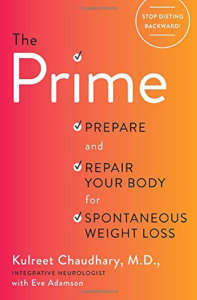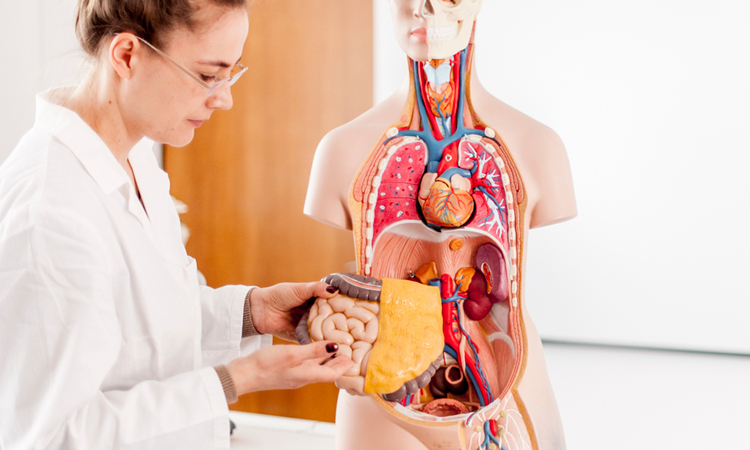We all get hunches emanating from our bellies. Maybe it’s a queasy feeling about a job offer, butterflies about a blind date or a premonition to avoid that particular alley. Gut instincts are my personal GPS. They’re encoded with silent but supercharged messages from our body.
 Ayurveda has long known our gut affects everything from our hunches to our health. In Ayurvedic medicine, we see the gut as the second brain – or as I explain in my book The Prime – they’re really part of the same brain. They’re in constant communication. The gut has a lot to say. Our ability to listen depends on trillions of microscopic bacteria living in our colon. So does our health, weight, mood and even our personality!
Ayurveda has long known our gut affects everything from our hunches to our health. In Ayurvedic medicine, we see the gut as the second brain – or as I explain in my book The Prime – they’re really part of the same brain. They’re in constant communication. The gut has a lot to say. Our ability to listen depends on trillions of microscopic bacteria living in our colon. So does our health, weight, mood and even our personality!
Western medicine calls this teeming metropolis of microbes the microbiome. It’s getting its 15 minutes of fame lately, and I believe it will literally revolutionize healthcare in the 21st century. Our gut flora is rife with bacteria, fungi and other microbes we need to survive. These single-celled organisms digest food, make vitamins and train our immune system to banish intruders. Gut bacteria manufacture almost all of our serotonin, dubbed the feel-good hormone, so you can understand why they affect mood too.
Microbes have been around several million years longer than us humans. Believe it or not, each one of us has ten times more bacterial cells than human cells. These tiny citizens have their own DNA. You could say we are, at best, ten percent human!
We can’t outnumber these guys. We want to befriend them, at least some of them. Like all good stories, there are good guys, bad guys and neutral bystanders just watching the show. The good, or symbiotic, bacteria enjoy heaping platters of rainbow-colored vegetables, whole grains, legumes, nuts, seeds and sun-ripened berries plucked from the vine. When we eat whole plant food, we feed our symbiotic bacteria. It’s a win-win. The bad, or parasitic, bacteria don’t love vibrant-colored foods, unless they’re artificially flavored. Green juices, stir-fries and salad bars aren’t their speed. Parasitic bacteria feed on supersized doses of sugar, salt and fat. These bad guys feast on pop tarts and soda pop, waffles and fried chicken.
What we eat determines the citizens in our microbiome – and quickly. A five-day study out of Harvard and Duke Universities shows that gut flora shift in as little as one day! Researchers divided up two camps of eaters. One group ate a diet rich in meat, eggs and cheese. The other team got fruit, vegetables, grains, legumes and nuts. By the end of the five-day study, scientists could look at a stool sample and know definitively which group it came from. For the carnivores, several undesirable species of bacteria became more common. One bug can cause inflammatory bowel disease in mice, and another can increase the risk of liver cancer. At the least, the study shows how quickly our diet changes our community of bacteria.
Speaking of mice, another study took gut bacteria from obese mice and transplanted it into healthy, slim rodents. The normal mice started overeating and, alas, soon became obese. The microbes actually controlled the animals’ behavior. A similar study showed fecal transplants affect personality too. Canadian researchers collected gut flora from mice prone to anxious behavior. They transplanted the bacteria into another type of mouse known for its serene disposition. The formerly calm rodents got anxious.
Stacks of new studies show our microbiome affects everything from our pounds to our personality. I saw this in my medical clinic time and time again. Neurology patients with conditions such as Multiple sclerosis and Parkinson’s disease, almost always had stomach issues for many years before they saw me. Symptoms like constipation and bloating are canaries in the coalmine, signaling an unhealthy microbiome. We must rebalance our gut flora and flush out toxic inflammation to stave off disease, improve our health and lose weight. It’s that important.



